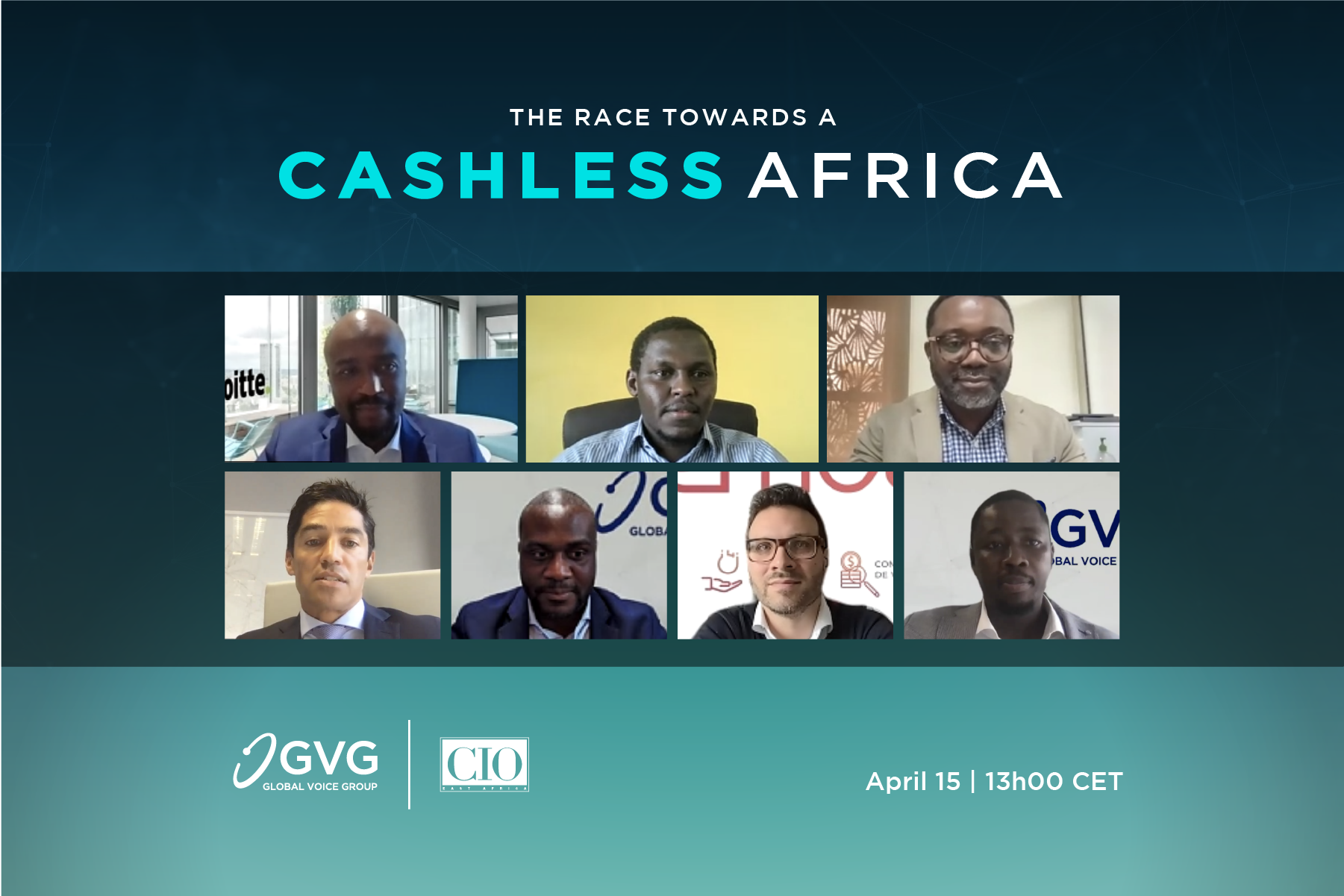
The Race Towards a Cashless Africa: The Key to Creating Value on the Continent
The race towards a cashless society: achievements & challenges
The growth of the cashless environment, which had been observed over recent years, intensified over the past months. This growth has led to the emergence of new players committed to minimizing the use of cash. However, turning Africa, where cash transactions still prevail, into a cashless society involves many factors other than coins and banknotes. Indeed, one must take the following factors into account:
- the technological infrastructures required to support this transition,
- the appearance of digital identities on the stage,
- the need for tools to secure the new financial system and
- the consumers’ trust in this new economic system.
All these factors were discussed at the Race Towards a Cashless Africa (RTCA) webinar that took place on 15 April. This event was co-organized by GVG and CIO East Africa.
GVG’s take on a cashless African society
During this event, experts from the African public and private sectors explored the continent’s race towards a cashless society. To begin with, GVG’s panelists shared their expertise regarding this economic movement. They thus underlined its different stages of development and its leading role in African society. Following James Claude’s introductory remarks on Africa’s ongoing transition, Daryl Bhana highlighted the risks involved in cash transactions. Laurent Sarr then mentioned the growing demand for compliance monitoring tools that can protect the ecosystem as well as its stakeholders. He also pointed out the encouraging movement towards an improved interoperability, which has become a key element of financial inclusion.
The experts’ perspectives
GVG was honored to welcome the following experts, who brought their own insights and experience to the cashless table:
- Sofien V. Sidhoum, co-founder of Semoa, a fintech company offering an all-in-one platform supporting the shift to a cashless economy;
- Andrew Mutua, founder and CEO of Pesakit, a Last Mile Agent network platform focusing on the acceleration of digital commerce and financial inclusion;
- Aristide Ouattara, Partner & Risk Advisory Leader at Deloitte, the well-known international professional services network;
- Bernard Ewah, DD of e-government development and regulation at the National Information Technology Development Agency in Nigeria (NITDA).
Sofien V. Sidhoum described KYC and trust as the foundation of secure digital transactions. To this, Andrew Mutua responded that trust was the result of the implementation of digital identities. For his part, Aristide Outtara highlighted the importance for financial institutions to create partnerships with fintech, insurtech and regtech players. Bernard Ewah then explained that the Nigerian government had taken steps to harmonize the existing ID systems through a PKI, to meet the KYC standards.
A unifying and enriching discussion
The Q&A session that followed prompted a lively and enlightening exchange in which the panelists touched on a variety of issues. These issues included digital identities, data privacy and confidentiality, regulatory compliance and the need for a cyberstrategy based on cyberresilience and cybervigilance.
The webinar came to an end with James Gabriel Claude’s closing observations on the essential role of regulators in implementing the framework that will help bring about the advent of an African cashless society.
Want to read more about digital identities? Click here.
View the full video of the webinar, here.
